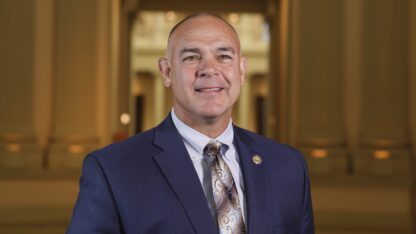Tina Brown, editor of The Daily Beast and Newsweek, tells us what she’s been reading in a feature that Morning Edition likes to call “Word of Mouth.” This month, Brown selects two pieces of writing profiling individuals at the center of political change in their respective countries.
A Penetrating New Profile Of Russia’s Putin
Brown’s first recommendation is The Man Without a Face, a biography of Vladimir Putin, recently re-elected president of Russia. Brown says Putin’s intelligence services targeted the book’s author, Masha Gessen, employing tactics designed to make the journalist feel that she was never safe.
“She was blacklisted as soon as [Putin] became president,” Brown says, “but she did continue, undaunted, to dig into Putin’s ruthless origins.”
Brown singles out Gessen’s account of Putin’s past because she believes it examines the president-elect’s psyche and what formed the man in a way that other biographers haven’t.
“What she has revealed is, here was this kid, Putin, who came from a very humble family, raised in the kind of mean streets of Leningrad,” Brown says. “His parents, though, had some perks that other kids didn’t have.”
As Gessen dug deeper, she realized Putin’s father had been a member of the Russian secret police.
“Where other kids wanted to be cosmonauts, Putin wanted to be a KGB spy,” Brown explains.
After graduating from college, Putin joined the KGB, and his first posting in 1985 was in East Germany. He considered the posting “a backwater,” Brown says, and was further disappointed by the fall of the Berlin Wall.
“He felt furious … because he felt that all the things that he’d grown up [with] and [been] trained to do were suddenly washed away by perestroika, which he despised,” Brown says.
Thinking about Russia’s present political climate, Brown suggests that the direction Putin is moving Russia in now resembles the repressive system he was familiar with in his youth.
“As he rose in power, he’s really always carried in his mind his ideal world of the closed-in Soviet world that he was raised in … that was the world he understood and liked,” Brown says.
Myanmar‘s Struggle For Democracy And Suu Kyi’s Personal Sacrifice
Brown’s second recommended read is a DailyBeast article about Aung San Suu Kyi, the pro-democracy leader in Myanmar, the country also known as Burma.
“Aung San Suu Kyi is really one of the great human-rights activists of our time,” says Brown, who ranks Suu Kyi alongside Nelson Mandela and even Gandhi. “She has braved so much on behalf of her country. It’s absolutely extraordinary.”
Suu Kyi’s life looked very different before she became the leader she is today: The daughter of a prominent Burmese general, she went to Oxford University and later married Michael Aris, an academic studying Tibetan culture. After raising two boys and living in London for 16 years, Suu Kyi returned to Burma in 1988 when her mother fell ill.
“She goes back to see her mother, who’s had a stroke, and happens to arrive right at this incredible moment in history where there’s a revolution happening in the streets of Burma,” Brown says. “She gets caught up and really appointed to be the moral leader of her country. At that moment her life changed irrevocably.”
Suu Kyi sees her family once more when they visit Burma, but when their visas run out and they return to England, Suu Kyi is placed under house arrest by the government.
“She’s told she can only see them if she never returns to Burma,” Brown says. “And she chooses to stay and face down the generals” — the junta that rules Myanmar to this day. “She chooses her country. It was an extraordinary personal sacrifice.”
Rebecca Frayn, the Beast article’s author, is also the screenwriter of The Lady, a film directed by Luc Besson about Suu Kyi.
“Rebecca Frayn researched for many years into this heroine of hers, really, and decided that her focus would be the love story between Aung San Suu Kyi and her husband, Michael Aris,” Brown says, “because it was the love and commitment of this husband who tried again and again to rally the world to her cause, who focused attention on what was happening in Burma, who was key in helping her get the attention to get the Nobel prize, which has been so helpful in the world stage.”
Brown notes both the heroism and heartbreak in the couple’s relationship — qualities she says Frayn captures in her piece.
“It’s tragic that … [in 1999 Aris] has cancer, and he wants to say goodbye to her,” Brown says, “and she’s not able to say goodbye to him. So she goes to the British Embassy where she’s allowed to record a goodbye message to him, but it takes two days to get that message smuggled into Oxford, where he’s dying. He dies without ever seeing the message.”
Copyright 2017 NPR. To see more, visit http://www.npr.org/.
9(MDAxODM0MDY4MDEyMTY4NDA3MzI3YjkzMw004))
9(MDAxODM0MDY4MDEyMTY4NDA3MzI3YjkzMw004))






